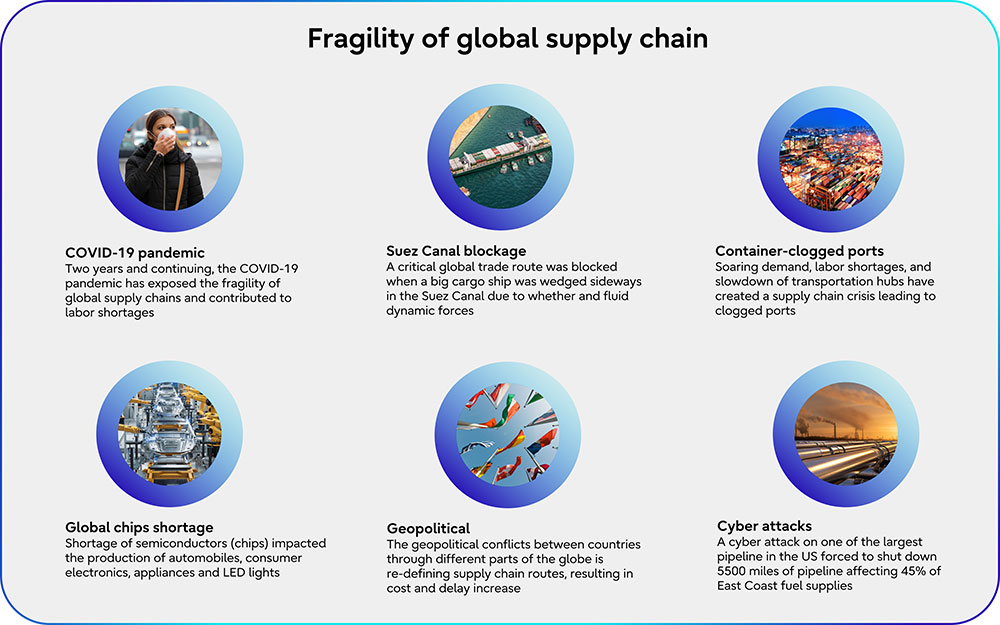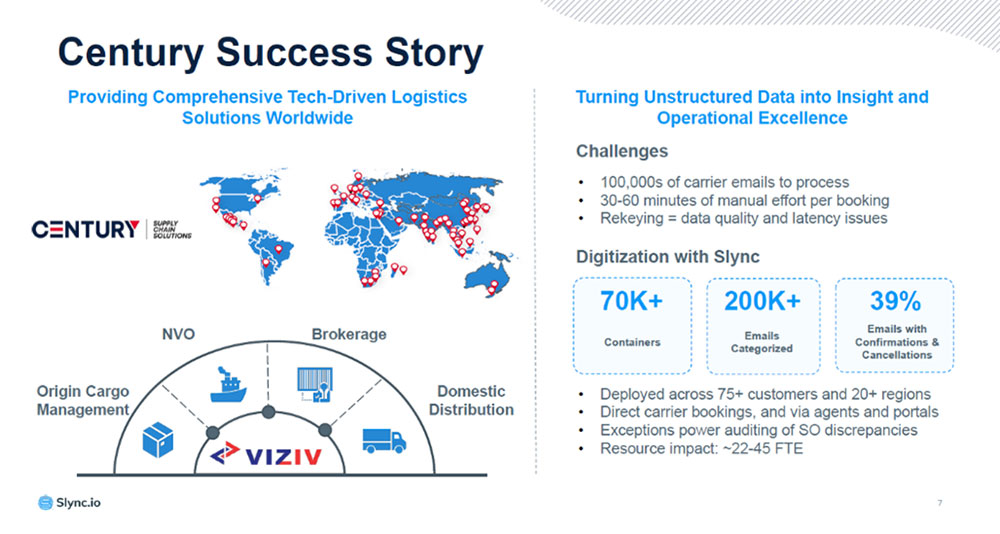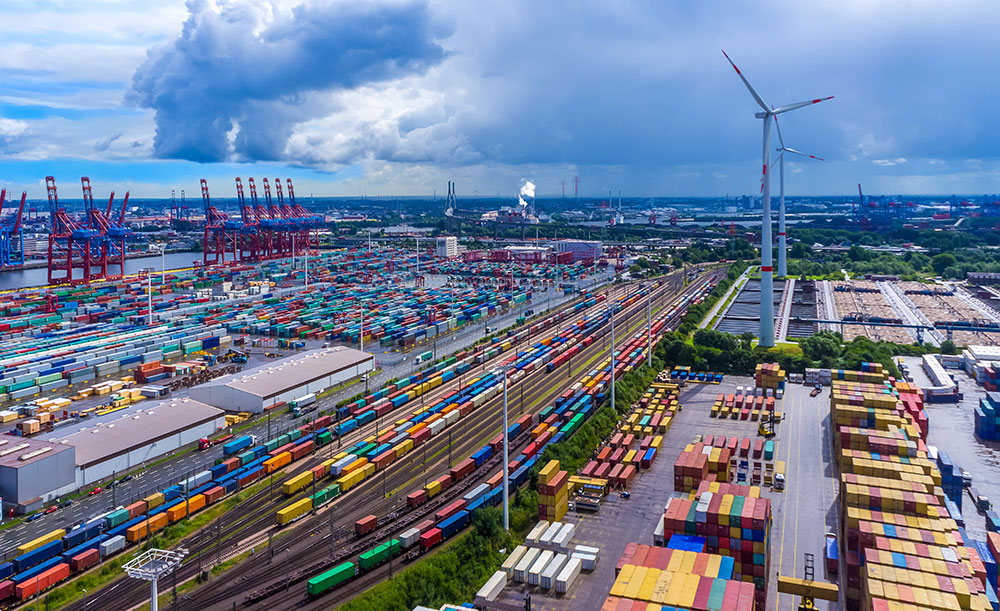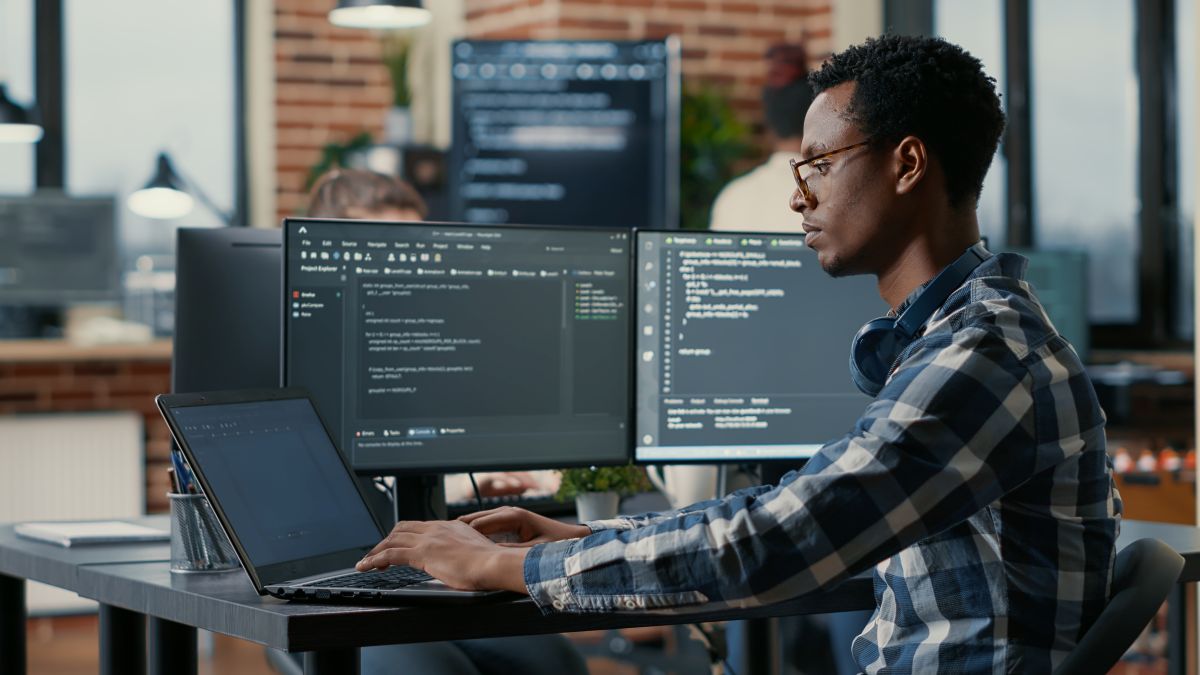From clogged ports to efficient supply chains: how AI is transforming the maritime industry
Fujitsu / January 15, 2024
Using AI to optimize solutions in the maritime industry can go a long way. From decongesting traffic to tracking unauthorized personnel, improving response time for shipment changes and updates, reducing fuel usage, and minimizing environmental impact, AI has applications that can help mitigate global supply chain challenges. In this interview, Shan Chidambaram, Head of AI at Fujitsu North America, Inc., provides context for AI usage in today's maritime industry with specific and notable examples, applications, and outlines the position of Fujitsu as a key player in today's AI landscape.
AI in today’s maritime industry
When we talk about AI in maritime ports and digital transformation, what are we talking about specifically?
Shan: We are specifically referring to the use of AI to address the challenges faced by the global supply chain. The maritime industry has been, is, and will be the backbone of the global supply chain. However, this supply chain has become fragile due to recent disruptions such as the COVID-19 pandemic, labor shortages, container blockages in the Suez Canal, and geopolitical crises that redefined supply chain routes, leading to cost increases and delays. In addition to these recent disruptions, the maritime industry faces legacy issues such as increasing consumer demand for instant product delivery, leading to rising freight costs. Balancing these complex issues is a challenge, but AI can be a game-changer in solving them.
For instance, when we talk about container-clogged ports: AI can be used to efficiently manage routing trucks and vessels in and out of the supply chain, reducing clogging, and increasing efficiency in several aspects.
With the help of AI, we can alleviate the issues that the maritime industry is currently facing, and we've already seen glimpses of how AI is positively impacting the industry across several pockets.

How can AI be applied in the maritime and port industry to enhance efficiency and productivity?
Shan: While there are common challenges faced by the global port ecosystem, each port also has unique challenges. For example, Fujitsu has helped the Hamburg Port Authority reduce the time cargo trucks spend on the road, which has led to less traffic congestion and carbon emissions. AI and evolving technology, combined with quantum-inspired computing, can optimize traffic flow around ports, route trucks efficiently, and minimize their time on the road. This not only benefits productivity but also contributes to social benefits by minimizing the impact on the local community.
Practical examples of AI usage in the maritime sector
Can you give us some specific use cases where AI solutions developed by Fujitsu have been successfully implemented in the maritime and port sectors?
Shan: Fujitsu has successfully implemented AI solutions in the maritime and port sectors, including a collaboration with a port in Asia to automate the handling of vehicles, heavy equipment, and machinery. This involves the use of automated equipment and machinery to efficiently move cargo within the ports. We believe that several related accelerators can help address the major challenges in vessel and vehicle routing, which is a common theme. Fujitsu has also had success with efficient routing in similar industries, such as the mobility industry, which can be directly applicable to the maritime industry. Our AI solutions have been developed and implemented for our clients, and we have demonstrable use cases such as the City of Montreal where the AI solution of Fujitsu enabled traffic to flow smoothly and reduced journey times of vehicles in its port district thereby lowering emissions.
How do Fujitsu AI solutions contribute to improving safety and security in maritime operations?
Shan: AI can be used to detect any behavior that may pose a safety or security risk, particularly through the analysis of video feeds and images using AI vision systems. For example, Fujitsu has developed its own IP, called Actlyzer, which is a video-based behavior analysis technology that analyzes the movements of workers and other people interacting with the environment within ports. Prebuilt actions, such as walking or lifting, can be determined and analyzed quickly using AI-enabled rules to identify potential safety concerns. Unauthorized personnel performing certain operations or entering restricted zones can also be detected and alerted through the analysis of video feeds. The Actlyzer technology works by quickly creating rules and analyzing the behavioral characteristics which allows for the identification of potential safety and security risks.
What are the challenges or barriers to implementing AI in the maritime and port sectors?
Shan: Challenges to implementing AI in this industry include lack of data standardization, high initial investment, cybersecurity concerns, skills gap, and fear of job loss. Overcoming these challenges requires change management and educating people within the sector about AI's role in improving efficiency and productivity, not replacing jobs. Embracing AI and adopting a good management strategy can help, as well as focusing on projects that exhibit increased productivity without job loss, demonstrating AI's benefits at every level.

Image Source: https://www.slync.io/blog/century-webinar-highlights-video
Besides management change, data silos are also a huge challenge because AI needs more and more data to perform at its best. In several ports, different agencies such as port authorities, freight forwarders, vessel companies, train operators, cargo handlers, and trucking companies work together, but the data is not shared seamlessly hindering AI's ability to address end-to-end issues. To effectively utilize the benefits of AI, data silos need to be broken, and healthy data-sharing arrangements and governance need to be in place between different players for mutual benefit. Enhanced data availability improves AI decision-making, making collaboration crucial for successful AI applications in the sector.
Notable optimizations made by AI applications
How can AI be applied in the maritime and port industries to enhance efficiency, boost productivity and minimize environmental impact?
Shan: AI can assist in optimizing vessel routing, reducing fuel consumption, and minimizing environmental impact in the maritime industry, specifically in the case of vessel routing as in the Port of Hamburg. AI can optimize the flow of traffic around the port area and dynamically plan for disruptions such as severe weather conditions or unexpected events like the Suez Canal blockage. AI can analyze complex factors and come up with the best optimal route that minimizes disruption to vessels while still reaching their destinations. With the ability to analyze huge volumes of data and dynamically changing constraints, AI can provide optimal recommendations instantaneously, allowing decision-makers to choose the best course of action.

Additionally, Fujitsu has an integrated end-to-end AI platform called Kozuchi (cloud and on-premise). This end-to-end platform accelerates the delivery of business value to port authorities. As each port faces unique challenges, not every challenge has a point-to-point solution. Therefore, there is a need to quickly develop AI-enabled solutions to solve unforeseen challenges that may arise in the future.
We are also developing AI core engines, which are technical accelerators that help organizations develop AI-enabled solutions faster. For example, with Fujitsu Auto ML - an accelerator for machine learning - organizations do not need to have a large team of data scientists and programmers to develop AI algorithms. By analyzing the challenge, data, and desired solution, Fujitsu Auto ML can create a machine learning program or code, reducing the time to come up with solutions.
Fujitsu as a key player in AI technology
What sets Fujitsu AI solutions apart from competitors?
Shan: We focus on core industry sectors where we have deep industry expertise. Our AI solutions are not just technical solutions, but the result of several years of experience and investment in industries such as manufacturing and ports. We ensure that our solutions are attuned to industry challenges and benchmarked at the highest level for accuracy. For example, our motion recognition AI model achieved the world's highest accuracy in basic motion for video surveillance. Delivering reliable and responsible business outcomes is at the heart of every AI solution developed by Fujitsu. The unique hallucination detection technology of Fujitsu is a testimony to our commitment to delivering reliable and ethical AI solutions to our clients. Furthermore, Fujitsu is a leader in high-speed computing. The supercomputer Fugaku jointly developed by Fujitsu and Riken has retained first place worldwide in HPCG and Graph500 rankings.
How do we stay up-to-date with the latest advancements in AI technology and incorporate them into our offerings?
Shan: We work directly with clients and industry leaders, such as the Journal of Commerce and The American Association of Port Authorities, to stay informed about the challenges faced by the industry. Our focus on working directly with clients and being on the ground with ports allows us to shape our AI offerings to solve the industry's main pain points. We also have a dedicated team of experts who stay up-to-date with the latest advancements in AI technology and incorporate them into our offerings. Our goal is not only to stay up to date with technology, but to evolve it to meet the needs of the industry and provide the best possible solutions to our clients.
Considering the “Fujitsu Technology and Service Vision 2023,” what is your vision for the future of AI in the maritime and port industries, and how does Fujitsu plan to contribute to its advancements?
Shan: At Fujitsu, our core principle is to be a human-centric organization that contributes to the betterment of humanity and society at large. This principle is reflected in our Fujitsu Technology and Service Vision 2023, which places a strong emphasis on ethical and fair solutions. Our AI solutions are designed to contribute to sustainability and advance the needs of society. In the maritime and port industries, we envision AI playing a critical role in enhancing safety, security, and efficiency, incorporating ethical and fair principles into our solutions.
As the head of AI within Fujitsu North America, my commitment is to deliver responsible and reliable AI solutions that solve complex problems for every industry we serve, including the maritime and port industries. Our dedication to delivering responsible and reliable solutions will continue to drive our advancements in AI and contribute to the balance between technological advancements and ethical considerations.
Business outcomes and future impacts
How do you ensure the scalability and adaptability of our AI offerings to meet the evolving needs of maritime and port organizations?
Shan: We focus on solving pressing use cases for our clients on a small scale to prove the value of AI in addressing those challenges. We also consider change management, scalability, and adaptability before implementing the solution in a mainstream production environment. Our approach is to first prove the value, solve the use cases, and then adapt and scale by addressing specific challenges for each client.
What are the main sustainability outcomes AI can bring to the Ports industries? Will its developments enable the creation of more solutions that provide a positive change to the overall environment?
Shan: Sustainability is becoming more than just a buzzword in the Ports industry, with carbon reduction being a key example. However, there is currently no uniform approach or assessment for measuring sustainability across ports. Efforts are being made by thought leaders within the industry to find uniformity in sustainability metrics, which will become a key differentiator within the industry. As ports become more competitive in terms of efficiency, productivity, and other metrics, sustainability will become a critical factor in differentiating themselves. AI-based solutions can contribute to sustainability in the Ports industry by optimizing operations, reducing emissions, and improving safety.

Linkedin: https://www.linkedin.com/in/shanchidambaram/
Editor's Picks











